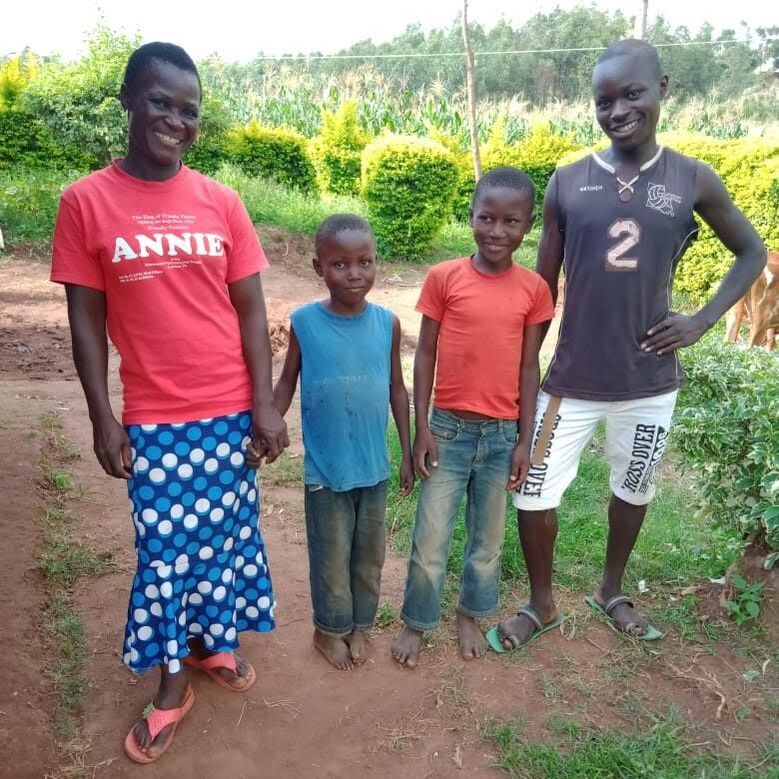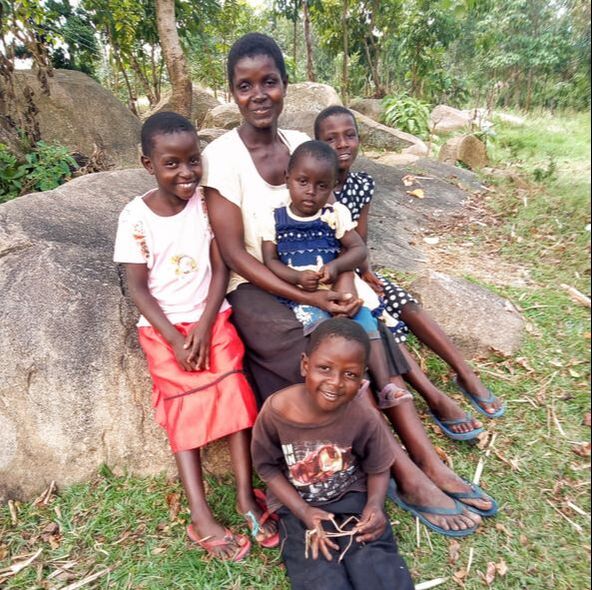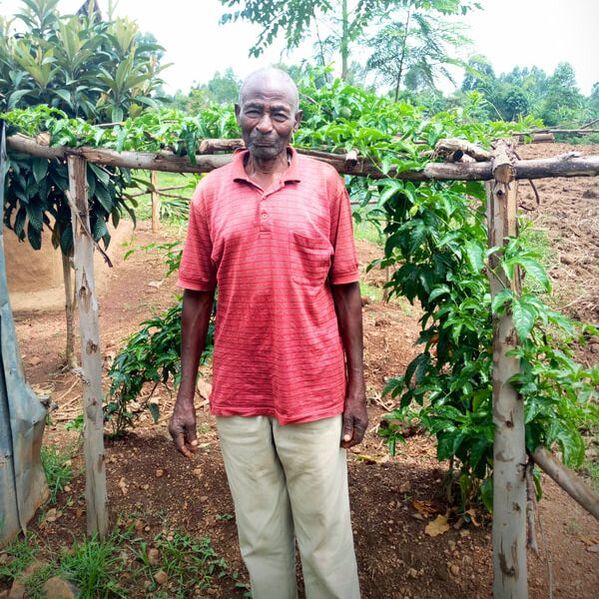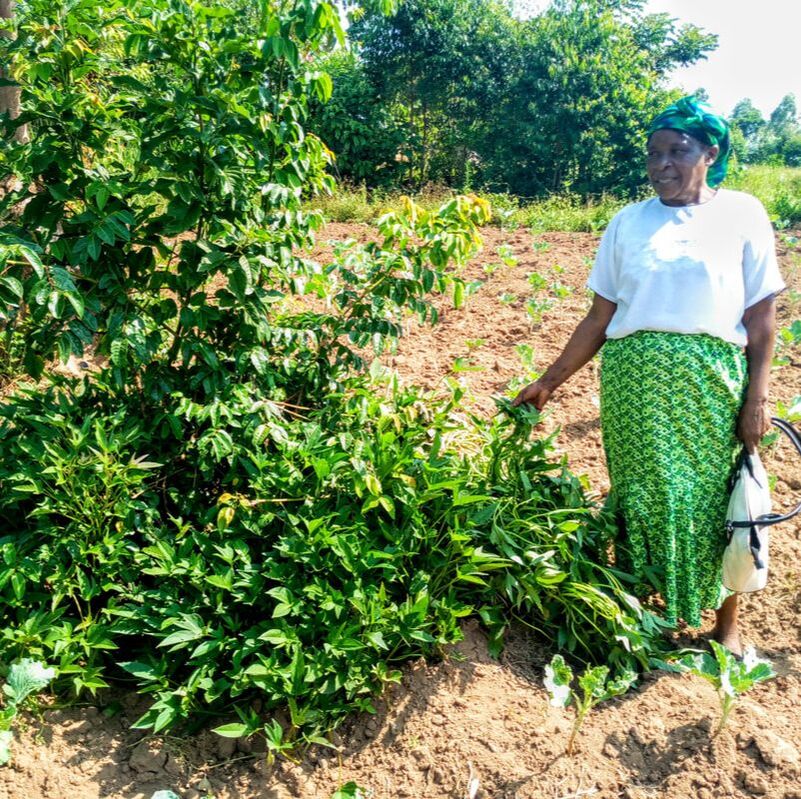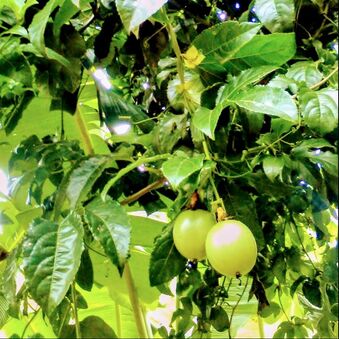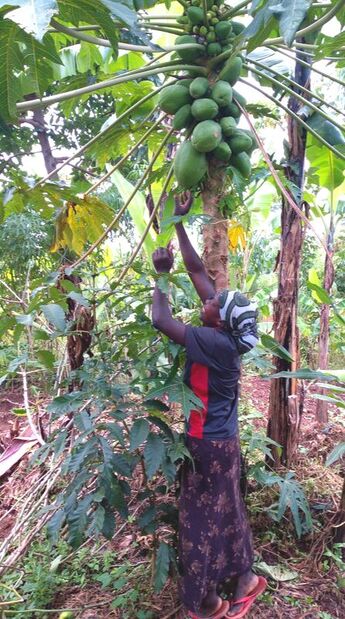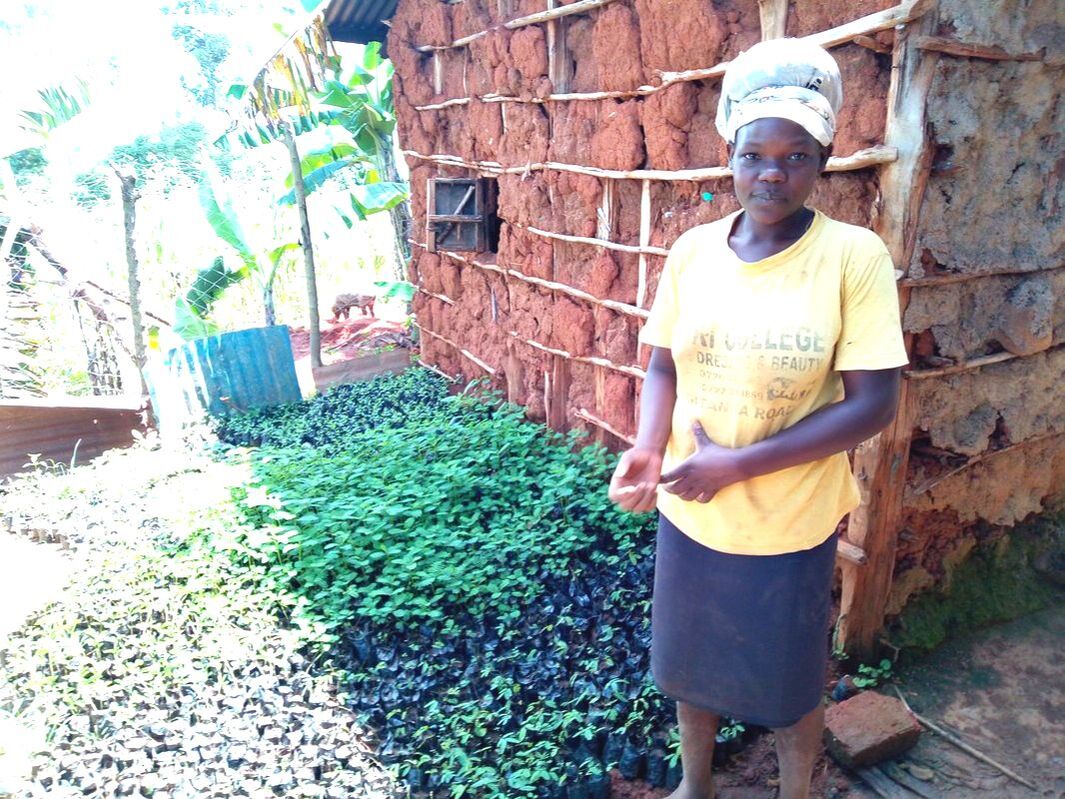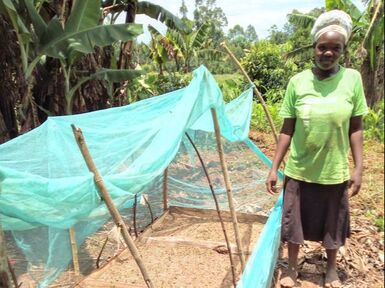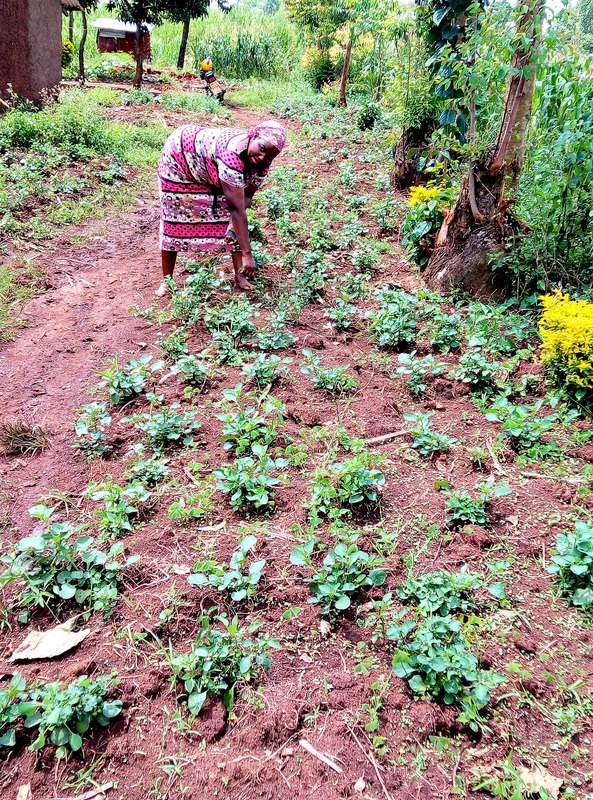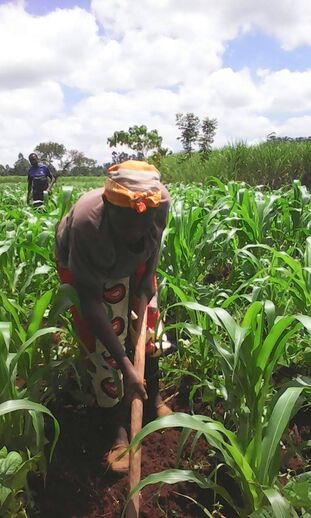|
Happy 18th Birthday to Friends of Kakamega!
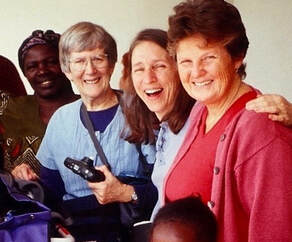
Friends of Kakamega turned 18 this month! It's been a long journey, and we're really growing up. On May 1st, 2002 - a full eighteen years ago - the first Friends of Kakamega meeting was held. Founders Sukie Rice, Sharon Salmon, and Molly Duplisea met on that day and formed a partnership with Dorothy Selebwa and the United Society of Friends Women in Kakamega.
They named the new organization Friends of Kakamega, and within a few years the free meals program included a dining hall, then a residence, then something much greater that reaches deep into the grassroots of rural communities. Since that time, and with your help, we've supported hundreds of young people in school and assisted nearly 2,000 people including all family members. Happy 18th birthday to us!
Kenya COVID-19 updates
Kenya now has over 750 confirmed Covid-19 cases. The relatively low number is a result of strict curfew, mask and sanitizer requirements, travel restrictions, neighborhood lockdowns, and the closure of schools, churches, open markets, and most shops. A lot remains unknown, including how long schools will remain closed. What is known is that the economy is tumbling and most families’ usual means of getting by is no longer providing.
With most means of livelihood in Kenya shut down and staple crops still far from harvest time, many families are struggling to buy food and other essentials. Last month, we sent out a call for support so that we could send $38 to the 200+ families in our programs, roughly enough for a family of five to buy one meal a day (plus soap) for a month. You responded to our call, and we want to say thank you.
94 donors responded with $12,056 in giving, and we sent $38 to all 213 of our students and their families. Having exceeded our goal and partnering with a few generous folks to help us bridge the gap, we are pleased to announce that we plan the same $38/family transfer in early May.
Click on photo below to see arrows and navigate slideshow.
Family Care for Greater & More Sustainable Impact
All of the children and students we support live within families. There are usually several siblings or cousins in each home, and the guardians include single parents, aunties, uncles, grandparents, and sometimes both living parents. Our programs have always supported these entire families to some extent, and we will be focusing even more on families in the future.
We have provided solar lights to help all children study and make family life easier with electric light. We have given families improved cookstoves to reduce indoor air pollution and improve the health of all. Our Homebased program gives a small cash stipend to help guardians pay school fees and buy requirements like uniforms and text-books; this money helps all children in a household, not just the one who is sponsored. The seed and trees projects help entire families eat healthier diets. As we evolve, in unison with our partner Crossroads Springs Africa, we are focusing more and more on helping families rise above poverty together. We are adapting to changing circumstances, because Kenya's economy has grown and the government now provides more funding to public schools, reducing the cost of fees paid directly by parents and other guardians. While the orphan crisis driven by HIV/AIDS has decreased significantly, poverty has stubbornly remained, particularly in rural areas of Kenya. While school fees are decreasing, the costs of required learning materials are as high as ever and this still keeps many children out of school. Roads have improved and electricity at rural homesteads is now more common, but this economic growth is highly unequal and the poorest have been left behind by the rapid change in wealthier neighborhoods of cities and towns. As we grow and learn as an organization, we are seeing that our support to individual students will one day end, but the support they get from their families lasts forever. Moving forward, we plan to strengthen our programming by making it more family-oriented, so that stronger families can help each other and the impact of our work becomes even more sustainable. We will continue our educational emphasis while helping more people rise up from difficult situations and find their paths to a better future. As students graduate from school and as families graduate from our programs, we will be able to reach even more people in need. We are not asking sponsors to multiply their contributions, but we are asking them to understand this shift that multiplies their impact on the ground. Together we have been transforming communities and creating a better world. In the months and years ahead, you will hear more and more about a "family care" model. We will start sharing with sponsors and donors not just updates about individual students, but also about the entire families which already benefit as a whole. We will put greater focus on helping families earn higher incomes and grow more healthy food. We will work even harder to provide families with information about any outside resources available from the Kenyan government, other nonprofits, social enterprises, and faith-based groups. We have been subtly talking more about families over the last year or two, and we will be increasingly direct as we talk about families in the future.
Click on a photo below to see arrows and navigate slideshow.
Fruit & Fertilizer Growing on Trees
The Trees Project was launched late last year to provide seedlings of fruit and soil-conserving trees to all the families supported by Friends of Kakamega. In the coming months and years, the impact of this once-small initiative will become greater as the trees planted grow bigger. 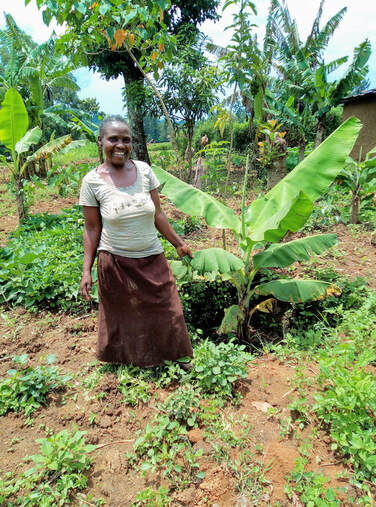
Already, some families are seeing the papaya and banana trees they planted come close to bearing their first fruits. Orange, lemon, soursop, and avocado seedlings are growing stronger and requiring less care. Passionfruit vines are climbing high and some are already producing
For some families, trees are thriving, but for others a number of seedlings have died. It is a numbers game, after all. We are not giving up and we intend to provide interested families with another round of fruit tree seedlings later this year. In the lush climate of Kakamega, year-round production of nutritious fruit is possible for families that successfully nurture to maturity twelve or thirteen different species that range from the most common (bananas and avocados) to some that are quite rare (jackfruit, soursop, and waterberry). Ultimately, we hope to see all our families harvesting more than a dozen types of fruit to bring them better nutrition from what they consume, and greater income from what they sell within their communities. Alongside improved or grafted fruit tree seedlings procured from certified vendors, KOCC assisted and trained ten families so they could set up nurseries of soil-conserving trees. Thousands of seedlings sprung up and have since been planted, and these ten families are working hard to continue these nurseries as small business ventures. In total, we know at least 5,500 tree seedlings that were shared from these nurseries among the families in KOCC programs. As these seedlings grow, they will shed leaves that are rich in nitrogen and improve the fertility of depleted soils so that family farms can produce more food and income in the future.
Seed Project Helps Families Improve Food Security
The Seed Project provides over 150 Care Centre families with agriculture training, seeds for nutritious but less-common vegetables, and a stipend to buy government-subsidized fertilizer.
This year the Care Centre managed to hold introductory workshops in the village regions. Although further workshops have been paused since mid-March because of coronavirus precautions, guardians have been receiving regular phone calls from agriculture officers Alfred Kitayi and Dennis Mutimba, who provide further education and encouragement on the phone in lieu of workshops and home visits. Apart from training on best practices for their staple crop maize, families receive advice on a large variety of more nutritious foods that they can grow at their homesteads. These range from carbohydrates and legumes like cassava, millet, lentils, and beans, to vegetables like butternut squash, pumpkins, carrots, and several indigenous leafy greens. Rainfall patterns have been unusually erratic over the last few months, and the families' traditional focus on maize alone is even less likely to provide a good yield than it has in the past, which makes growing more diversified and healthy foods even more important. Most families we support are used to eating only two meals per day, and most of those meals lack the essential vitamins and nutrients that children need to grow strong and healthy so they can focus on education and a better future. This essential project tries to ameliorate that situation, and it is one of the most important things we support KOCC in implementing. The Seed Project's costs are not fully included in annual sponsorship dues, and the initiative is one the largest expenses we have that doesn't have specific financial support from our sponsors. As such, we may occasionally ask for contributions towards this worthy cause. If you wish to support it now, please give through the special button below.
1 Comment
|
Friends of Kakamega's News & UpdatesThis page offers occasional highlights, news, and updates about our work in Kakamega. Archives
July 2020
Categories
All
|
Friends of Kakamega is a 501(c)(3) non-profit organization (EIN 56-2375938), and your contributions are fully tax-deductible. No goods or services are provided in exchange for charitable sponsorships and donations.
Copyright © 2017 Friends of Kakamega
Copyright © 2017 Friends of Kakamega

